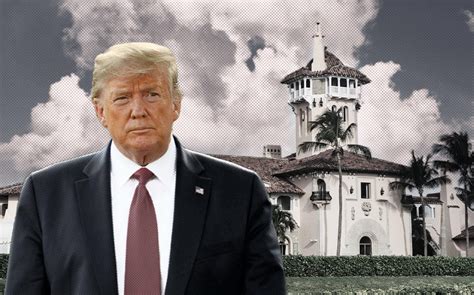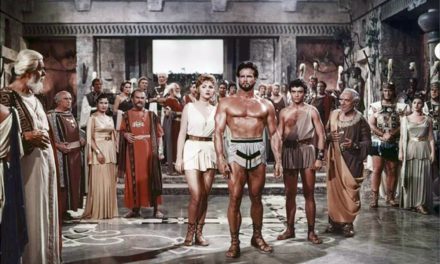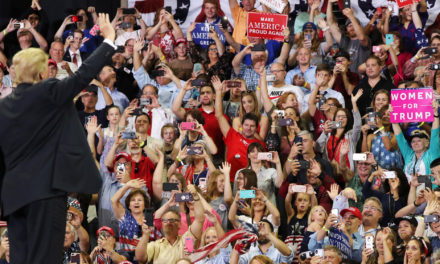I have Jim Geraghty of National Review Online to thank for the link to an article in the New Republic from two years ago by David Dayen entitled “Trump is Right: Deficits Don’t Matter.” As the title suggests, the author argues that deficits are a preoccupation of mainly Republicans (hypocritical) and old-fashioned economists, something the former complains about when the Democrats are in office but contribute to when they’re in, and the latter believe are economically disastrous.
As for the hypocrisy of Republicans, who could argue with that claim? Even a cursory examination of spending over the last few administrations, regardless of the party in control (though as far as the purse-strings go, that’s usually the Democrats), will reveal the not-too-startling fact that spending far in excess of revenue is unspoken government policy.
Unspoken, unless you’re David Dayen and a group of economists who subscribe to something known as MMT. They talk about it.
In case you’ve never heard of it, MMT means Modern Monetary Theory. Dayen explains: “[MMTers] believe in de-emphasizing the need for deficit reduction because the U.S. controls its own currency. Balanced budgets, to MMTers, take money out of the hands of ordinary Americans who can put it to more productive use through job creation and consumer spending.”
Moreover, the theory asserts, unless we reach full employment, “when overheated consumer demands can lead to inflation,” the deficit is irrelevant. It’s not unfair to conclude, then, that the theory advocates nothing less than the government’s spending as much as it wants on whatever it wants and, presumably, for the good of all.
A couple of disturbing phrases in Dayen’s essay caught my eye; for example, “overheated consumer demands” as the cause of inflation. Nothing there about the increase in the money supply and tampering with the re-discount rate, or the lag between prices and wages. But, of course, that’s old-fashioned economics, outdated theory. Then there’s the business about a balanced budget taking “money out of the hands of ordinary citizens.” You, as an “ordinary citizen,” may find that claim, as King Arthur sang in Camelot, “a bit bizarre.”
Every April 15th, the government really does take money out of my hands, and I’ll lay odds it does the same to you. That’s something known as taxation. What the feds take from you are dollars you can no longer spend on consumer goods or place into capital investment. Dayen’s idea seems to be that this is a mere superstition. When Washington takes your money, it spends it on things you really need even if you didn’t know about it. How convenient! And all the while the irrelevant yearly deficit increases adding to our overall debt.
The solution to the problem of deficit and debt traditionally has been to rein in spending (the Republican solution) or to raise taxes (the Democrat solution) or both. With the national debt around twenty trillion (minus the multi-trillions of “unfunded liabilities” of Medicare and Social Security), both solutions are, more or less, pointless because excessive cuts and excessive taxation are political suicide. And so Washington spends on.
Strangely, Dayen finds taxes so irrelevant that the article, especially one dealing with government spending, hardly mentions them. His target is fiscal responsibility or “budget cuts,” a tar baby and briar patch rolled into one: Don’t throw us there! Because you see, when the government adopts such austere measures, it deprives Joe and Jane Citizen of things they couldn’t possibly acquire otherwise.
Here’s what of Dayen’s says about budget cuts: “But such cuts don’t lead to more jobs, higher wages, and a better life; spending on infrastructure or health care or education does.” The assumption is that if we’re going to get the economy humming, only federal spending can do it, along with, you can be sure, federal planning. Bureaucrats in Washington have to eat too.
I’ll take Dayen’s word for it that the intricacies of MMT are enough to boggle the mind. But whether they’re simple or complex, there’s a fundamental belief behind the scheme, which Dayen evidently takes for granted. The assumption is that bureaucracy, red tape, and an unlimited supply of money equal prosperity and a supply of goods, which, without the government, would be non-existent. It’s the sort of formula that inspired ex-President Obama to rhapsodize about “shovel-ready jobs.”
Dayen’s optimism notwithstanding, Washington hasn’t been exactly inactive in medicine, education, and infrastructure. In fact, the feds have been nearly omnipresent in all of those areas. Private businesses that have to deal with the government learn very quickly that with Washington money one inevitably gets an avalanche of paperwork, quotas on hiring, environmental studies, estimated costs ridiculously below the final bill, and timetables that turn projects of months into years or decades.
Those realities will probably remain a permanent mystery to David Dayen and the MMTers. As long as the Federal Reserve and the Treasury can create money out of thin air to finance the latest scheme cooked up by Congressman X or Bureaucrat Z, economic growth is as certain as the rising of the sun. Economic laws that tell a private businessman that he can’t spend what he does not have or must pay back what he borrows may be happily ignored.
And if trillions from the feds haven’t improved education, with each decade discovering a new “crisis” of plummeting test scores; if they haven’t made health care more affordable; and if the shovel-ready jobs remain an empty slogan—never fear! A few trillion more will get us over the hump even if they don’t get us out of the hole.
There’s just one thing I don’t understand. If, as the MMTers insist, the government can spend recklessly and, for all practical purposes, indefinitely without fear of outlays outdistancing revenues, why does Washington need to tax us at all? Since the money can be created, let the printing presses supply the need, and let taxpayers keep every last penny of what they earn.
Why not? If the good faith and credit of the government are all that is necessary to turn paper into gold—and Dayen assures his readers it’s unconstitutional to say otherwise—then let the priests of MMT spread the good news that Washington can create money as it pleases to fund anything it wants without our hard-earned dollars. If the feds will stop taxing us, we’ll be faithful. Trust me on that one.
But if the MMTers are dead wrong, and Washington is really not the fountainhead of prosperity but a morass of waste and cronyism, then money on demand will continue to be demanded from us the people, and the hole our government is merrily spending us into will get deeper and deeper—until we get to China.














